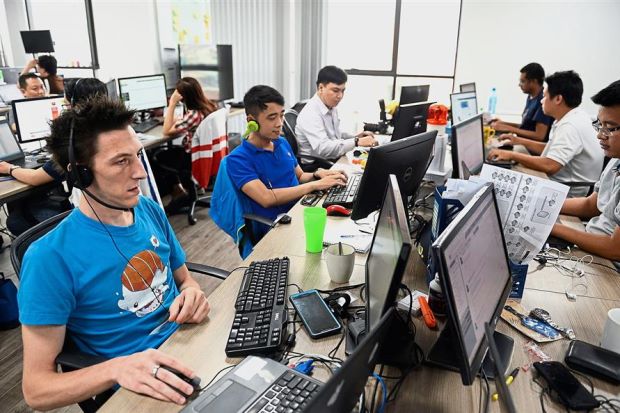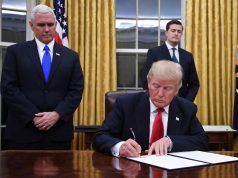
The government is supporting more activities to create a dynamic ecosystem
Vietnam has become an ideal location to start a business, not only for young Vietnamese people returning from overseas but also for expatriates, thanks to the country’s strong economic growth in recent years.
Vietnam has had many programmes that have helped create a dynamic startup ecosystem by facilitating a wide range of supporting activities, such as training, mentorship and business incubation and acceleration.
Nguyen Xuan Bang, one of the founders of Gcalls in Singapore who came back to Vietnam in 2016 to start the business here with an aim of developing the company’s product in the Vietnamese market, said that startups get benefits from these programmes.
Gcalls develops infrastructure and software for a web-based call centre. The startup’s software breaks down communication barriers between buyers and sellers. It allows anyone to buy on any e-commerce site regardless of connection speed.
In December 2017, the company received a promised investment of US$1mil (S$1.32mil) from Vina Capital through Shark Tank Vietnam, a reality television show designed to help startups locate funds.
Loic Gautier, who works with Pierre-Antoine Brun from France to set up Leflair in 2015, a shopping destination for premium brands in Vietnam, said: “Over the past few years, Vietnam’s government has been putting a lot of efforts into supporting startups.”
“I have seen a lot of communities gathering entrepreneurs and sharing practices on how to build a company, which reflects the strong entrepreneurship of the Vietnamese,” Gautier said.
Moreover, the country has had financing programmes to support the growth of new companies. Vietnam’s government is also committed to building a fair and competitive business environment.
Gautier, Leflairs chief executive officer, said that Vietnam’s government has also made efforts to promote online shopping.
“We chose Vietnam because e-commerce here was under the radar and only nascent. The demographics and Internet penetration numbers were a perfect fit for fast adoption of a service like ours, and coupled with a large amount of consumers frustrated with the lack of shopping options and product offerings when it comes to brands, it looked like the perfect base on which to build Leflair,” Gautier added.
Following the flash-sales model that has proven to be successful in Europe and China, such as Vente-privee.com and Vip.com, Leflair provides its customers with limited-time only deals of premium brands discounted up to 70% off the retail price.
After two years in operation, the website now has over one million in monthly traffic, 700,000 members and partners with 1,100 local and international premium brands. To date, Leflair has successfully closed three rounds of funding and attracted top foreign investors, including Google’s vice-president for India and South-East Asia Rajan Anandan.
Most of them are first-time investors into Vietnam, he said, adding that more and more investors are eager to invest in Vietnamese startups.
However, the legal and administrative environment, for example, lags behind the specific needs of fast growing companies who often find themselves trying to move fast in a rigid system still dominated by slow procedures, Gautier said.
A simplification and digitalisation of financial, tax, legal and administrative procedures, as in a country like Singapore, would be greatly beneficial to startup companies and entrepreneurs, he added.
“Our difficulties mostly revolve around attracting enough talent in a very scarce market. To build a large business, especially in a new field such as e-commerce, we need a large number of people with a level of technical knowledge and skills that are still relatively new in Vietnam,” he added.
Nguyen Xuan Phu, chairman of Sunhouse Groups management board, which is an investor in the Shark Tank Vietnam programme, said that as Vietnam develops, it should be easy for startups to earn profits. However, they should be careful.
Due to economic cycles which are the natural fluctuations of the economy between periods of expansion (growth) and contraction (recession), they may not have a lot of experience and it would be difficult for these companies to manage during a downturn.
Pham Thanh Hung, vice chairman at CEN Group, which is also one of the investors in the programme of Shark Tank Vietnam, said that the foreign startups and those who study abroad and start up businesses overseas have many strengths, including more practical ideas for businesses and better ways to develop these ideas into reality professionally.
ANN



































